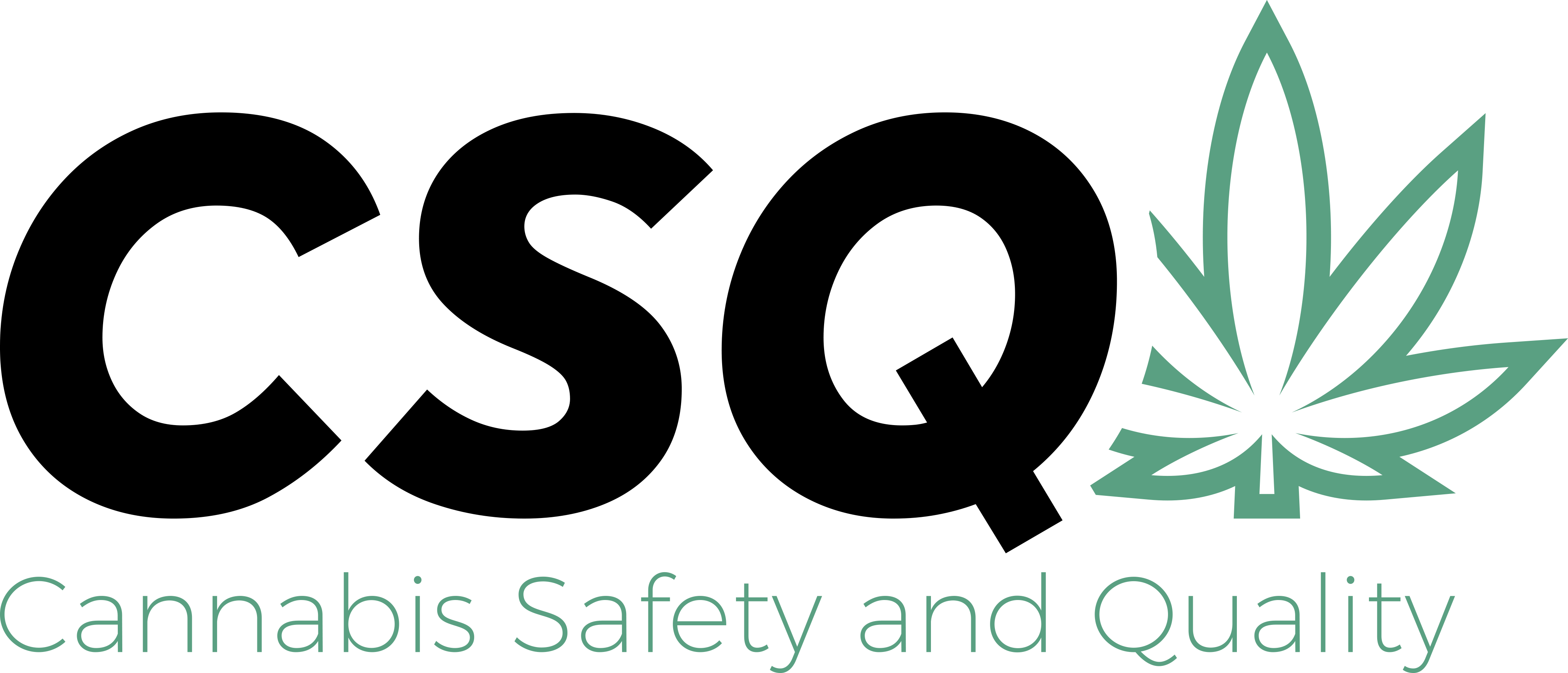How Third-Party Safety And Quality Audits Can Help The Cannabis Industry Self-Regulate And Avoid Mandatory Regulations
by Tyler Williams, founder and Chief Technical Officer of Cannabis Safety & Quality (CSQ)
The disadvantages of receiving a third-party audit are apparent – it takes a lot of time to build a cannabis safety and quality program that meets audit requirements, and the costs of an audit can be relatively expensive. Additionally, if your company decides to use an external consultant to help develop your cannabis safety and quality program, it can add even more costs to the equation. So why bother getting a third-party audit at all if it is not mandatory? If the ethical response of “it’s the right thing to do” does not resonate, consider these more practical responses.
Legal Protection
Note that the lack of legal requirements for cannabis cultivators and manufacturers does not offer protection from legal action, and defending against litigation can be expensive even if a company prevails.
Brand Protection
If a consumer becomes ill (or worse) from ingesting or inhaling one of your company’s products, the negative public backlash and decline in consumer confidence can damage both your company’s bottom line and the industry as a whole.
Insurance Benefits
Insurance companies evaluate cannabis businesses based on their history and their current safety programs they have in place (e.g. GMPs, Recall Programs, Supplier Approval Programs, etc.). Whether or not a company has programs like these in place can influence the costs of their insurance. Additionally, third-party audits give cannabis businesses a verification record that their safety and quality programs are operating as intended. This verification record could help that company when dealing with insurance claims made from recalls or other adverse events.
Marketing Benefits
Enhance your company’s marketability by becoming certified to a third-party audit standard. For example, the new CSQ Standard lists all their certified locations on their website. This database creates a network of cannabis businesses who all meet industry requirements. Cannabis retailers will be able to search this public database and determine to do business with a cultivator or manufacturer based on their compliance with the CSQ Standards.
Self-Regulation
By proactively self-regulating, the cannabis industry can mitigate the possibility for high-profile recalls or outbreaks that might prompt regulators, such as the FDA, to establish mandatory and imposing regulations for the industry. Mandatory regulations could have a more burdensome effect and even be more costly than self-regulation with third-party audits.
Self-regulation is always preferable to mandatory regulation, and evidence of this is found in the alcohol industry’s self-regulation of marketing and advertising, as well as the video gaming industry’s self-regulation of video game ratings by the Entertainment Software Rating Board (ESRB). While third-party audits are not mandatory in every region, a voluntary and proactive approach that includes third-party auditing of cannabis cultivators and manufacturers will keep consumers safe and protect your company’s bottom line. All while avoiding adverse incidents that would initiate further scrutiny of the cannabis industry or prompt mandatory regulations.
To ensure that the industry is self-regulating properly, there are five proposed principles for self-regulation through third-party auditing.
- A set of transparent and specific standards created by industry stakeholders that includes a public comment period.
- External oversight through accreditation bodies, benchmarking organizations, and other external committees to ensure no disproportionate power or voting authority.
- A public database in which individuals can search what companies are compliant with the requirements.
- Transparent procedures for stakeholders to file complaints and provide feedback on the standards and their enforcement.
- Periodic assessments and reviews to determine if the goals of the standards are being met.
In addition to setting sound principles for industry self-regulation, it is also important to highlight things that could potentially go wrong with self-regulation. The following three practices are often associated with the failure of a self-regulating system.
- Weak standards that do not apply globally and permit unsafe practices.
- The absence of transparency or weak oversight can undermine the objectives of the self-regulating system.
- Industry leaders neglect to be part of the movement towards self-regulation.
For this reason, I urge industry leaders to sign a commitment to provide the safest and highest quality products possible and volunteer to be part of the movement of self-regulation of the cannabis industry through independent third-party audits.
ABOUT THE AUTHOR
Tyler Williams is the founder and Chief Technical Officer of Cannabis Safety & Quality (CSQ). Over the years, Tyler has diligently worked with various industry stakeholders and conducted sample audits on several cannabis cultivators and manufacturers to ensure the CSQ audit requirements meet the needs of this new and booming industry. Tyler currently sits on the Policy Council and the Cannabis Manufacturing Committee for the NCIA.
Before founding CSQ, Tyler was the Vice President of Operations for ASI, one of the leading food safety auditing, training, and consulting companies in the U.S. In this position Tyler was responsible for the certification process of over 3000+ audits annually and managed ASI’s employees and contracted auditors around the world. In addition to managing the day-to-day operations of ASI, Tyler also trained and consulted several different major food and beverage companies around the world to help improve their food safety practices.
In 2019, Tyler started a non-profit organization called Show Me Food Safety. This organization provides resources to small food manufacturers and growers in Missouri to help improve their food safety practices and get on the shelves of local grocery stores.
Originally Post: thecannabisindustry.org


